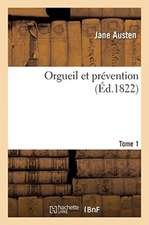Now Is the Time to Open Your Heart
Autor Alice Walkeren Limba Engleză Paperback – 28 feb 2005
In Now Is the Time to Open Your Heart, Alice Walker has created a work that ranks among her ?nest achievements: the story of a woman’s spiritual adventure that becomes a passage through time, a quest for self, and a collision with love.
Kate has always been a wanderer. A well-published author, married many times, she has lived a life rich with explorations of the natural world and the human soul. Now, at fifty-seven, she leaves her lover, Yolo, to embark on a new excursion, one that begins on the Colorado River, proceeds through the past, and flows, inexorably, into the future. As Yolo begins his own parallel voyage, Kate encounters celibates and lovers, shamans and snakes, memories of family disaster and marital discord, and emerges at a place where nothing remains but love.
Told with the accessible style and deep feeling that are its author’s hallmarks, Now Is the Time to Open Your Heart is Alice Walker’s most surprising achievement.
From the Hardcover edition.
| Toate formatele și edițiile | Preț | Express |
|---|---|---|
| Paperback (2) | 44.12 lei 3-5 săpt. | +22.69 lei 6-12 zile |
| Orion Publishing Group – sep 2005 | 44.12 lei 3-5 săpt. | +22.69 lei 6-12 zile |
| BALLANTINE BOOKS – 28 feb 2005 | 114.71 lei 3-5 săpt. |
Preț: 114.71 lei
Nou
Puncte Express: 172
Preț estimativ în valută:
21.95€ • 23.47$ • 18.30£
21.95€ • 23.47$ • 18.30£
Carte disponibilă
Livrare economică 27 martie-10 aprilie
Preluare comenzi: 021 569.72.76
Specificații
ISBN-13: 9780812971392
ISBN-10: 0812971396
Pagini: 256
Dimensiuni: 133 x 205 x 14 mm
Greutate: 0.19 kg
Editura: BALLANTINE BOOKS
ISBN-10: 0812971396
Pagini: 256
Dimensiuni: 133 x 205 x 14 mm
Greutate: 0.19 kg
Editura: BALLANTINE BOOKS
Notă biografică
ALICE WALKER won the Pulitzer Prize and the American Book Award for her novel The Color Purple. Her other novels include By the Light of My Father’s Smile and Possessing the Secret of Joy. She is also the author of three collections of short stories, three collections of essays, five volumes of poetry, and several children’s books. Born in Eatonton, Georgia, Walker now lives in northern California.
From the Hardcover edition.
From the Hardcover edition.
Extras
Cool Revolution
kate talkingtree sat meditating in a large hall that was surrounded by redwood trees. Although the deep shade of the trees usually kept the room quite cool, today was unseasonably warm and Kate, with everybody else, was beginning to perspire. They had been meditating, on and off their cushions, for most of the morning, beginning at five-thirty when they roused themselves, at the sound of the bell, from their beds. When they broke from meditating inside, they quietly made their way outside and into the courtyard. Up and down the path that led to the front door of the hall they did a walking meditation that had been taught them by a lot of different Buddhist teachers, some from America and some from Asia. It was a slow, graceful meditation that she liked; she enjoyed the feeling of a heel touching the earth long before a toe followed it. Meditating this way made her feel almost as slow as vegetation; it went well with her new name, a name she’d taken earlier, in the spring.
Ever since she was small she’d felt a wary futility about talking. At the same time she realized it was something that, in order for the world to understand itself at all, had to be done. Her old last name had been Nelson, and for a time she’d thought of calling herself Kate Nelson-Fir. She loved fir trees, especially the magnificent, towering ones that grew on the Northwest coast.
When it was time for the dharma talk to begin Kate made her way to a spot close enough to see and hear the teacher very easily. He was a middle-aged man of southern European descent, with an ecru complexion and a shining bald head. His brown eyes twinkled as he talked. Every once in a while he reached up and stroked the silver earring in his left ear. Because of the earring and because he seemed spotless in his flowing robes, she mentally dubbed him Mr. Clean. She had been coming to his talks every day for more than a week, and had enjoyed them very much. Today he was talking about the misguided notion that a “hot” revolution, with guns and violence, such as the ones attempted in Africa, Cuba, and the Caribbean, could ever succeed. He seemed unaware that these revolutions had been undermined not only by their own shortcomings but also by military interference from the United States. The only revolution that could possibly succeed, he maintained, smiling, was the “cool” one introduced to the world by the Lord Buddha, twenty-five hundred years ago.
Something about this statement did not sit well with Kate. She looked at him carefully. He was certainly a well-fed-looking soul, she thought. Not many meals missed by that one, except by accident. Quietly glancing down at the program on the floor beside her, she saw he had grown up in an upper-middle-class home, had had educated and cultured people as parents and as grandparents, had studied and lived in Europe as well as in the East. Was now a prominent professor at one of the country’s most famous universities. Easy enough for him to dismiss the brown and black and yellow and poor white people all over the globe who worried constantly where their next meal was coming from, she thought. How they would feed, clothe, and educate their children. Who, if they did sit down to meditate, would probably be driven up again by the lash. Or by military death squads, or by hunger, or by . . . the list was long.
Looking around her she noticed most of the meditators shared the teacher’s somewhat smug, well-fed look. They were overwhelmingly white and middle- to upper-middle-class and had the money and leisure time to be at a retreat. In fact, she noted, she seemed to be the only person of color there. What was wrong with this picture?
Her mind, which had been clear as a reflecting pool just minutes before, now became cloudy. This was exactly what meditation was meant to prevent. She took a deep breath, labeled her thoughts “thinking,” as she’d been instructed to do if her mind wandered during meditation, and settled herself more firmly on her cushion. She would listen to this teacher, whom she indeed respected very much, and she would not be critical. Besides, she knew what he meant. There was a way in which all “hot” revolutions defeated themselves, because they spawned enemies. Look at those crazy ex-Cubans in Miami, for instance, who never recovered from having some of their power taken away, and the endless amount of confusion, pain, and suffering they caused.
After the talk she began to think in earnest. She felt she had reached an impasse on the Buddhist road.
That evening and the next day and the next she found herself unable to meditate. She kept looking out the window instead, just as she had looked out of the window of the Church of God and Christ, as a child, when she had been unable to believe human beings, simply by being born, had sinned. The redwood trees looked so restful, their long branches hanging down to the earth. Each tree created a little house, a shelter, around itself. Just right for a human or two to sit. She hadn’t realized this before, how thoughtful this was. But on her very next walking meditation she slowly, slowly, made her way to the largest redwood tree and sat under it, becoming invisible to the dozens of people who continued their walking meditation and slowly walked all around her.
When everybody else returned to the meditation hall, she did not.
From the Hardcover edition.
kate talkingtree sat meditating in a large hall that was surrounded by redwood trees. Although the deep shade of the trees usually kept the room quite cool, today was unseasonably warm and Kate, with everybody else, was beginning to perspire. They had been meditating, on and off their cushions, for most of the morning, beginning at five-thirty when they roused themselves, at the sound of the bell, from their beds. When they broke from meditating inside, they quietly made their way outside and into the courtyard. Up and down the path that led to the front door of the hall they did a walking meditation that had been taught them by a lot of different Buddhist teachers, some from America and some from Asia. It was a slow, graceful meditation that she liked; she enjoyed the feeling of a heel touching the earth long before a toe followed it. Meditating this way made her feel almost as slow as vegetation; it went well with her new name, a name she’d taken earlier, in the spring.
Ever since she was small she’d felt a wary futility about talking. At the same time she realized it was something that, in order for the world to understand itself at all, had to be done. Her old last name had been Nelson, and for a time she’d thought of calling herself Kate Nelson-Fir. She loved fir trees, especially the magnificent, towering ones that grew on the Northwest coast.
When it was time for the dharma talk to begin Kate made her way to a spot close enough to see and hear the teacher very easily. He was a middle-aged man of southern European descent, with an ecru complexion and a shining bald head. His brown eyes twinkled as he talked. Every once in a while he reached up and stroked the silver earring in his left ear. Because of the earring and because he seemed spotless in his flowing robes, she mentally dubbed him Mr. Clean. She had been coming to his talks every day for more than a week, and had enjoyed them very much. Today he was talking about the misguided notion that a “hot” revolution, with guns and violence, such as the ones attempted in Africa, Cuba, and the Caribbean, could ever succeed. He seemed unaware that these revolutions had been undermined not only by their own shortcomings but also by military interference from the United States. The only revolution that could possibly succeed, he maintained, smiling, was the “cool” one introduced to the world by the Lord Buddha, twenty-five hundred years ago.
Something about this statement did not sit well with Kate. She looked at him carefully. He was certainly a well-fed-looking soul, she thought. Not many meals missed by that one, except by accident. Quietly glancing down at the program on the floor beside her, she saw he had grown up in an upper-middle-class home, had had educated and cultured people as parents and as grandparents, had studied and lived in Europe as well as in the East. Was now a prominent professor at one of the country’s most famous universities. Easy enough for him to dismiss the brown and black and yellow and poor white people all over the globe who worried constantly where their next meal was coming from, she thought. How they would feed, clothe, and educate their children. Who, if they did sit down to meditate, would probably be driven up again by the lash. Or by military death squads, or by hunger, or by . . . the list was long.
Looking around her she noticed most of the meditators shared the teacher’s somewhat smug, well-fed look. They were overwhelmingly white and middle- to upper-middle-class and had the money and leisure time to be at a retreat. In fact, she noted, she seemed to be the only person of color there. What was wrong with this picture?
Her mind, which had been clear as a reflecting pool just minutes before, now became cloudy. This was exactly what meditation was meant to prevent. She took a deep breath, labeled her thoughts “thinking,” as she’d been instructed to do if her mind wandered during meditation, and settled herself more firmly on her cushion. She would listen to this teacher, whom she indeed respected very much, and she would not be critical. Besides, she knew what he meant. There was a way in which all “hot” revolutions defeated themselves, because they spawned enemies. Look at those crazy ex-Cubans in Miami, for instance, who never recovered from having some of their power taken away, and the endless amount of confusion, pain, and suffering they caused.
After the talk she began to think in earnest. She felt she had reached an impasse on the Buddhist road.
That evening and the next day and the next she found herself unable to meditate. She kept looking out the window instead, just as she had looked out of the window of the Church of God and Christ, as a child, when she had been unable to believe human beings, simply by being born, had sinned. The redwood trees looked so restful, their long branches hanging down to the earth. Each tree created a little house, a shelter, around itself. Just right for a human or two to sit. She hadn’t realized this before, how thoughtful this was. But on her very next walking meditation she slowly, slowly, made her way to the largest redwood tree and sat under it, becoming invisible to the dozens of people who continued their walking meditation and slowly walked all around her.
When everybody else returned to the meditation hall, she did not.
From the Hardcover edition.
Recenzii
Praise for Alice Walker:
“Alice Walker is a lavishly gifted writer.”
—The New York Times Book Review, about The Color Purple
“Amazing, overwhelming.”
—Ursula K. Le Guin, about The Temple of My Familiar
“Places Walker in the company of Faulkner.”
—The Nation, about The Color Purple
“Hugely original...once again demonstrates Walker’s gigantic talent.”
—Baltimore Sun, about By the Light of My Father’s Smile
From the Hardcover edition.
“Alice Walker is a lavishly gifted writer.”
—The New York Times Book Review, about The Color Purple
“Amazing, overwhelming.”
—Ursula K. Le Guin, about The Temple of My Familiar
“Places Walker in the company of Faulkner.”
—The Nation, about The Color Purple
“Hugely original...once again demonstrates Walker’s gigantic talent.”
—Baltimore Sun, about By the Light of My Father’s Smile
From the Hardcover edition.
Descriere
The Pulitzer Prize-winning author of "The Color Purple, Possessing the Secret of Joy," and "The Temple of My Familiar" now gives readers a beautiful new novel that is at once a deeply moving personal story and a powerful spiritual journey.














